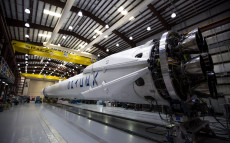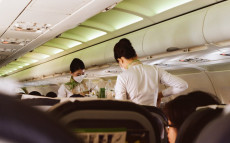- pathfindersAI
- Job Profile
Aircraft Mechanics and Service Technicians
Summary
Aircraft Mechanics and Service Technicians: A Comprehensive Career Overview
What They Do
Aircraft Mechanics and Service Technicians play a vital role in the aviation industry, ensuring the safety and efficiency of aircraft operations. These skilled professionals are responsible for maintaining, inspecting, and repairing various types of aircraft, from small planes to large commercial jets. Their work is essential to the smooth and secure functioning of air travel, as they diagnose mechanical problems, replace malfunctioning parts, and perform routine checks. By adhering to stringent industry standards and regulations, they contribute significantly to passenger safety and operational reliability.
Job Responsibilities
The job responsibilities of Aircraft Mechanics and Service Technicians are diverse and demanding. These include conducting regular inspections, both scheduled and unscheduled, to ensure aircraft compliance with safety standards. They meticulously examine aircraft frames, engines, and systems, using diagnostic tools and technical manuals. Repairs and replacements are performed on defective components, such as brakes, landing gear, and electrical systems. Additionally, mechanics are tasked with keeping comprehensive maintenance records and logs, which are critical for tracking the history and performance of the aircraft. They often collaborate with engineers and other aviation professionals to troubleshoot complex issues and implement solutions.
Essential Skills
Success in this field requires a strong set of essential skills. First and foremost, technical proficiency is crucial, as mechanics must understand and navigate the complexities of modern aircraft systems. Problem-solving skills are equally important, allowing technicians to diagnose issues accurately and devise effective solutions. Attention to detail is paramount, given the meticulous nature of inspection and repair tasks. Good hand-eye coordination and manual dexterity are necessary for handling tools and components. Moreover, communication skills are vital for liaising with colleagues, reporting findings, and documenting work. Finally, a solid foundation in math and science underpins the technical knowledge required in this field.
Educational Pathways
Aspiring Aircraft Mechanics and Service Technicians typically pursue a combination of education and hands-on training. Most start with a high school diploma, focusing on subjects such as mathematics, physics, and engineering. Post-secondary education options include certificate programs, associate degrees, and bachelor's degrees in aviation maintenance technology. Accredited programs by the Federal Aviation Administration (FAA) are highly regarded, offering specialized training in areas like airframe and powerplant mechanics. These programs combine classroom instruction with practical experience, providing students with the skills and knowledge required for FAA certification. Continuing education and obtaining additional certifications can further enhance career prospects and expertise.
Career Prospects
The career prospects for Aircraft Mechanics and Service Technicians are promising, reflecting the growth and dynamism of the aviation industry. According to labor market forecasts, the demand for these professionals is expected to grow, driven by increases in air travel, commercial aviation, and an aging fleet of aircraft needing maintenance and upgrades. Opportunities exist across various settings, including airlines, airports, private maintenance companies, and government agencies. With experience, technicians can advance to supervisory roles, specialized fields, or even transition into related areas such as avionics or aerospace engineering. The profession offers a blend of stability and advancement potential, making it an attractive career choice.
Conclusion
In summary, a career as an Aircraft Mechanic and Service Technician is both challenging and rewarding, requiring a blend of technical skills, practical training, and educational credentials. These professionals ensure the safety and functionality of aircraft, making a substantial impact on aviation operations. With a positive job outlook and opportunities for advancement, this field offers a fulfilling career pathway for those with a passion for aviation and a commitment to excellence. For students and aspiring technicians, pursuing this career means embarking on a journey filled with growth, innovation, and contributions to one of the most dynamic industries in the world.
Video
Compensation
| State | Median Salary | Median Hourly | Positions |
|---|---|---|---|
| AL | 85,410 | 41.06 | 4,590 |
| AK | 80,270 | 38.59 | 1,180 |
| AZ | 70,160 | 33.73 | 4,980 |
| AR | 56,970 | 27.39 | 600 |
| CA | 80,280 | 38.59 | 12,660 |
| CO | 75,730 | 36.41 | 2,300 |
| CT | 75,790 | 36.44 | 1,080 |
| FL | 64,340 | 30.94 | 14,010 |
| GA | 75,300 | 36.20 | 6,420 |
| HI | 78,270 | 37.63 | 1,080 |
| ID | 63,420 | 30.49 | 750 |
| IL | 73,350 | 35.27 | 4,230 |
| IN | 61,020 | 29.34 | 1,140 |
| IA | 64,060 | 30.80 | 360 |
| KS | 76,320 | 36.69 | 2,330 |
| KY | 70,720 | 34.00 | 4,440 |
| LA | 67,810 | 32.60 | 1,280 |
| ME | 76,650 | 36.85 | 400 |
| MD | 93,510 | 44.96 | 1,510 |
| MA | 82,420 | 39.62 | 1,560 |
| MI | 61,870 | 29.75 | 3,180 |
| MN | 81,590 | 39.22 | 2,060 |
| MS | 75,720 | 36.41 | 1,410 |
| MO | 67,560 | 32.48 | 2,000 |
| MT | 62,150 | 29.88 | 330 |
| NE | 61,760 | 29.69 | 460 |
| NV | 95,130 | 45.74 | 2,080 |
| NH | 68,580 | 32.97 | 250 |
| NJ | 82,970 | 39.89 | 1,690 |
| NM | 47,640 | 22.91 | 930 |
| NY | 85,010 | 40.87 | 3,000 |
| NC | 64,880 | 31.19 | 5,220 |
| ND | 64,880 | 31.19 | 200 |
| OH | 74,170 | 35.66 | 3,180 |
| OK | 67,420 | 32.41 | 7,330 |
| OR | 77,260 | 37.14 | 1,160 |
| PA | 63,910 | 30.73 | 2,350 |
| RI | 75,610 | 36.35 | 70 |
| SC | 61,290 | 29.47 | 1,320 |
| TN | 83,000 | 39.91 | 5,320 |
| TX | 77,640 | 37.33 | 16,360 |
| UT | 63,710 | 30.63 | 2,140 |
| VT | 71,610 | 34.43 | 100 |
| VA | 78,710 | 37.84 | 2,490 |
| WA | 82,370 | 39.60 | 3,990 |
| WV | 62,180 | 29.90 | 350 |
| WI | 56,470 | 27.15 | 1,040 |
| WY | 69,450 | 33.39 | 240 |
Similar Occupations
In this area you will find other occupations that are close to the one you were viewing in tasks, knowledge and work environment. If the primary job profile you are viewing isn't quite to your liking, take a look around and see what else is available.
Basic and Premium Accounts have more alternative occupations available than the Free account.

Aerospace Engineering and Operations Technologists and Technicians - 17-3021.00
Aerospace Engineering and Operations Technologists and Technicians assist in the design, testing, and maintenance of aircraft, spacecraft, and related systems and equipment. They utilize technical skills and advanced tools to ensure the functionality, safety, and efficiency of aerospace technologies and operations.
-
$77,830/yr
Median Pay -
10,640
Number of Jobs

Aircraft Service Attendants - 53-6032.00
Aircraft Service Attendants are responsible for ensuring that aircraft cabins are clean, well-stocked, and ready for passengers, which includes tasks such as tidying up seats, restocking supplies, and managing waste removal. They also assist in maintaining safety standards by conducting pre-flight safety checks and reporting any issues to relevant personnel.
-
$39,110/yr
Median Pay -
24,940
Number of Jobs